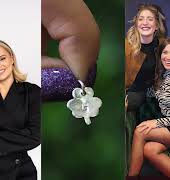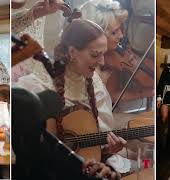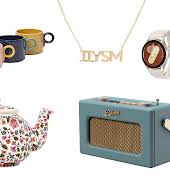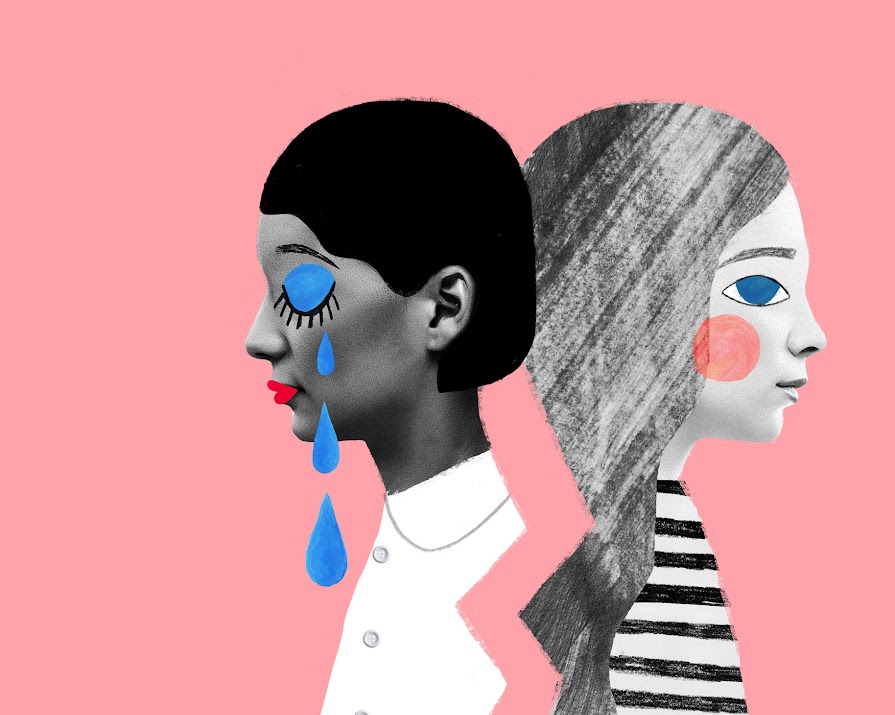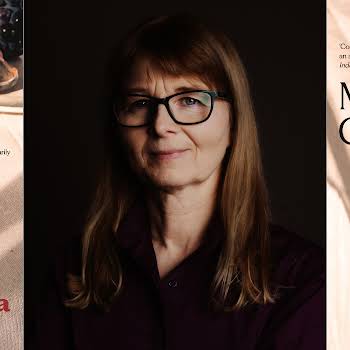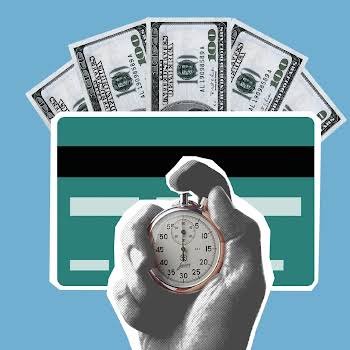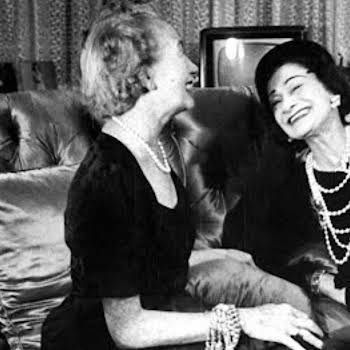
By IMAGE
17th Aug 2019
17th Aug 2019
When our romantic relationships end, heartbreak is expected and sympathy shared, but when we break up with a friend, the loss can be just as great and leave us with a pain that lasts a lifetime, writes Emily Hourican.
Heartbreak. It’s inevitable, right? No one gets to 30, maybe not even 20, without having their heart broken at least once. There are whole industries devoted to the matter – there is ice-cream to be eaten straight from the freezer late at night, “You-Go-Girl!” anthems and power ballads to listen to, break-up movies to watch, new clothes to buy to dress up that broken heart.
But what the movies and power ballads so often ignore is that your broken heart can be the result of a friendship gone wrong just as much as a love affair. Friend break-ups are the unsung younger siblings of romantic catastrophe; less catchy, less dramatic, but often just as painful.
‘Best friends’
Female friendships are intense. Women, perhaps, are designed that way. Most of us will surround ourselves with strong, deep female friends from a very young age. I watch my daughter – aged eight – with her “best friends”. They have been close from the age of five, a friendship based on need as much as affection. By which I mean that my daughter, when she was four, was already fascinated by two girls in her Montessori who were, she told me wistfully, “best friends”. She said it with awe, like it was something sacred.
Related: An end to a friendship isn’t always a failure
I could see she wanted that – more even than she wanted a giant Beanie Boo. She could see that the thing itself was desirable, separate even to the characteristics of the other person involved. And she was right. Our girlfriends are vital. Those friendships, I would argue, are as deep, as formative, as powerfully compelling as any romantic relationship.
“Best friends: the pixie dust sprinkled across the books, films and songs aimed at their age group.”
Little girls get the full fetishisation of “best friends” – this is the pixie dust sprinkled across the books, films and songs aimed at their age group (Bruno Mars’ “Count On Me” is pretty much the anthem of eight-to-ten-year-olds, and don’t forget those necklaces with half-a-heart pendants – the idea being that your BF wears the other half). But once we grow up enough for boys to enter the scene, the BF thing gets pushed to the background – then, they are relegated to being the Greek chorus to the “real” business of your heart – falling romantically in love.
But that is unfairly limited.
My most intense relationships, other than with my husband, have all been with women. Much of the hyper-intensity belongs to our early years – once we all settle, perhaps with families and children, the friendship dynamic relaxes a little. But the power to form deep friendships never, happily, goes away, and nor does the need to mourn them when they go awry.
Unrequited love
I can only vaguely remember my school and college boyfriends. In contrast, time spent with my girlfriends is vivid. I remember laughing hard enough to double over and crying rivers of tears. The pain of unrequited love was more than made up for by the joy of sharing the details of it with my pals.
“I have cried for girlfriends as much as any boyfriend; for friendships that have run their course or ended in brutal betrayal.”
We did exciting things together – lied, mitched, smoked, drank, vomited – but also, maybe more than that, we did nothing together. Long afternoons and evenings with nowhere to go except round to the shopping centre again. Hours spent with one shade of nail varnish and an unending store of chat that ranged seamlessly from the gossipy and trivial to the personal and metaphysical. My closest friends, from that time and later, have had far more influence on me, on the person I am now, than any boyfriend.
Related: An ode to female friendship
Some of those early friendships are still intact. Others are not. And the ones that aren’t – often, there was no grown-up drifting away from one another; there was a harsh, angry breach, the memory of which can still cause me pain.
Brutal betrayal
I have cried for girlfriends as much as any boyfriend; for friendships that have run their course or ended in brutal betrayal. Because that happens too. Youth is impetuous and sometimes harsh – the sheer act of survival through your late teens and early twenties can mean throwing ballast overboard in a desperate attempt to stay aloft. Sometimes that ballast is a friend, a person you have loved. You chuck them, because you can’t cope with them, or think you have outgrown them, or because severing that bond seems like the only way to form new ones. Sometimes, they do it to you.
Your best friend can be your enemy too. Or at least your competition, and the backwards-tug to your forward momentum. They can hold you back as much as spur you on, compete as well as encourage, tear down as much as build up. Sometimes, they do all those things at once, or in quick succession. If this one person is “everything” to you, then that means the bad as well as the good. Your greatest cheerleader, and harshest critic.
In those cases, we’re talking about friendships so intense that they couldn’t have lasted. Their burnout was inevitable. I still think about my BFF from school and university. Someone I admired, copied (yes, I admit…), confided in, worried about, got drunk with, cried with, laughed with, reassured and sought reassurance from.
“It was too hard to explain that the pain of loss was the loss of a friend. A lover – everyone gets that.”
We lived together for several years, did everything together, shared each other’s darkest secrets and deepest joys. And when the end came, instead of letting go with grace, we tore at each other in a hail of recriminations – of betrayal, belittlement, disrespect. What came between us? Not a boyfriend (for all that the misogynistic media likes to portray women as unable to fight over anything except a man). In fact, it was a newer, deeper female friendship for one of us that superseded the old one. And it was every bit as awful as a cheating boyfriend.
I remember that there wasn’t really anywhere to take the grief that I found then. It was too hard to explain that the pain of loss was the loss of a friend. A lover – everyone gets that, there are a million mechanisms to acknowledge and assuage your hurt, and society swings into action for you.
Too many bridges
A female friendship – the response is more muted; baffled. What’s the big deal? Plenty, as it turns out. Years of shared confidences – the constant back-and-forth of hopes, dreams, secrets, clothes, make-up, plans, money worries – forming such deep-rooted entanglement that the ensuing separation is both brutal and traumatic.
“When I see her, I can remember the full weight of our friendship and the vital place it once held in my heart.”
I have seen the friend since, and we are fond, with many shared memories, but cautious too. You can’t cause and feel that kind of pain, and not be. Where I meet old boyfriends and strain to recall what it was that held us together in the first place, when I see her, I can remember the full weight of our friendship and the vital place it once held in my heart.
It is unrecoverable – too much water, too many bridges – but I miss it. I know what to call the old boyfriends – my exes – but I have no word for these one-time close friendships.

Emily Hourican’s new novel, The Outsider (Hachette Ireland, approx €16), is out now.
Main illustration by Anne O’Hara, anneohara.com @oharaillustration

This article originally appeared in the July/August issue of IMAGE Magazine.



